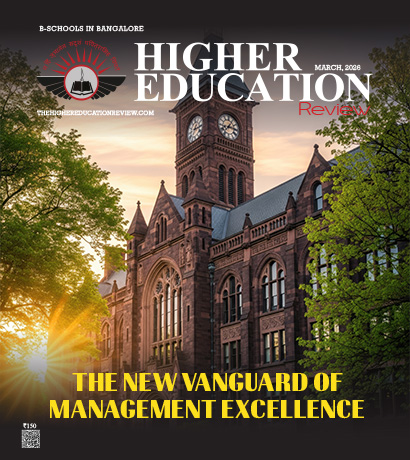NMC Releases New Faculty Qualification Rules for Med Colleges

- Experienced professionals can become faculty without senior residency if they complete a research course within two years.
- M.Sc./Ph.D faculty are now allowed in five non-clinical departments, with a 30% appointment cap reinstated.
- Age limit for senior residents raised to 50, expanding eligibility in preclinical and paraclinical fields.
After the Central government announced the addition of 75,000 new medical seats over the next five years, the National Medical Commission (NMC) has issued the Medical Institutions (Qualifications of Faculty) Regulations, 2025, intended to broaden the pool of qualified faculty and support the increase of undergraduate (MBBS) and postgraduate (MD/MS) seats in medical colleges throughout India.
The Post Graduate Medical Education Board (PGMEB) has introduced new regulations under the NMC, the legal authority overseeing medical education, professionals, institutions, and research in India.
Per the updated regulations, government hospitals not engaged in teaching that have over 220 beds may now be classified as educational facilities. Moreover, experts with a decade of experience may be designated as Associate Professors, while those with two years of experience can be designated as Assistant Professors without the required senior residency, provided they finish the Basic Course in Biomedical Research within two years.
“These regulations mark a paradigm shift in how faculty eligibility is determined — shifting the focus from rigid service norms to competency, teaching experience, and academic merit,’’ the NMC mentioned in a statement, noting that the reform would speed up the growth of medical education, especially in areas with limited resources.
Additional modifications involve the broader application of M.Sc./Ph.D. faculty, allowing the Departments of Microbiology and Pharmacology to appoint faculty with M.Sc./Ph.D. qualifications alongside Anatomy, Physiology, and Biochemistry.
The maximum age for selection as a senior resident has been raised to 50 years in preclinical and paraclinical fields such as Anatomy, Physiology, and Biochemistry, while also broadening the eligibility for super-specialties, enabling the use of current faculty across various departments.
The revised regulations specify that senior consultants who possess three years of teaching experience in government medical institutions accredited by the National Board of Examinations and Medical Sciences (NBEMS) qualify for the Professor position; and diploma holders employed as specialists or medical officers in the related departments of a government medical institution, or a government medical institution with a teaching program approved by the NBEMS and having a total of six years of experience, qualify for the Assistant Professor position, among others.
Permitting internal cadre mobility, the NMC regulations indicate that faculty holding super-specialty qualifications presently employed in broad specialty departments can be officially recognized as faculty in their relevant super-specialty departments.
Also Read: NMC Clarifies No Plans to Cut Telangana Medical College Seats
“The NMC is reducing pre-conditions for being teachers with an aim of creating more colleges and students, but this measure is missing out the fact that rigorous teaching standards must be maintained to ensure good patient care,’’ a senior doctor in a Central government facility said.
The National M.Sc. has welcomed the initiative. The Medical Teachers' Association (NMMTA) observed that via the Medical Institutions (Qualifications of Faculty) Regulations, 2025 from June 30, and the Amendment Notification from July 2, the Union Ministry of Health and Family Welfare reestablished the allowable 30% appointment cap for educators holding medical M.Sc./Ph.D degrees in the five non-clinical areas — Anatomy, Biochemistry, Physiology, Pharmacology, and Microbiology.
“This correction brings a much-needed end to years of injustice that stemmed from the MSR-2020 guidelines, which had severely impacted the careers, livelihoods, and dignity of non-medical teachers while also aggravating faculty shortages in medical colleges across India,’’ the NMMTA said.

